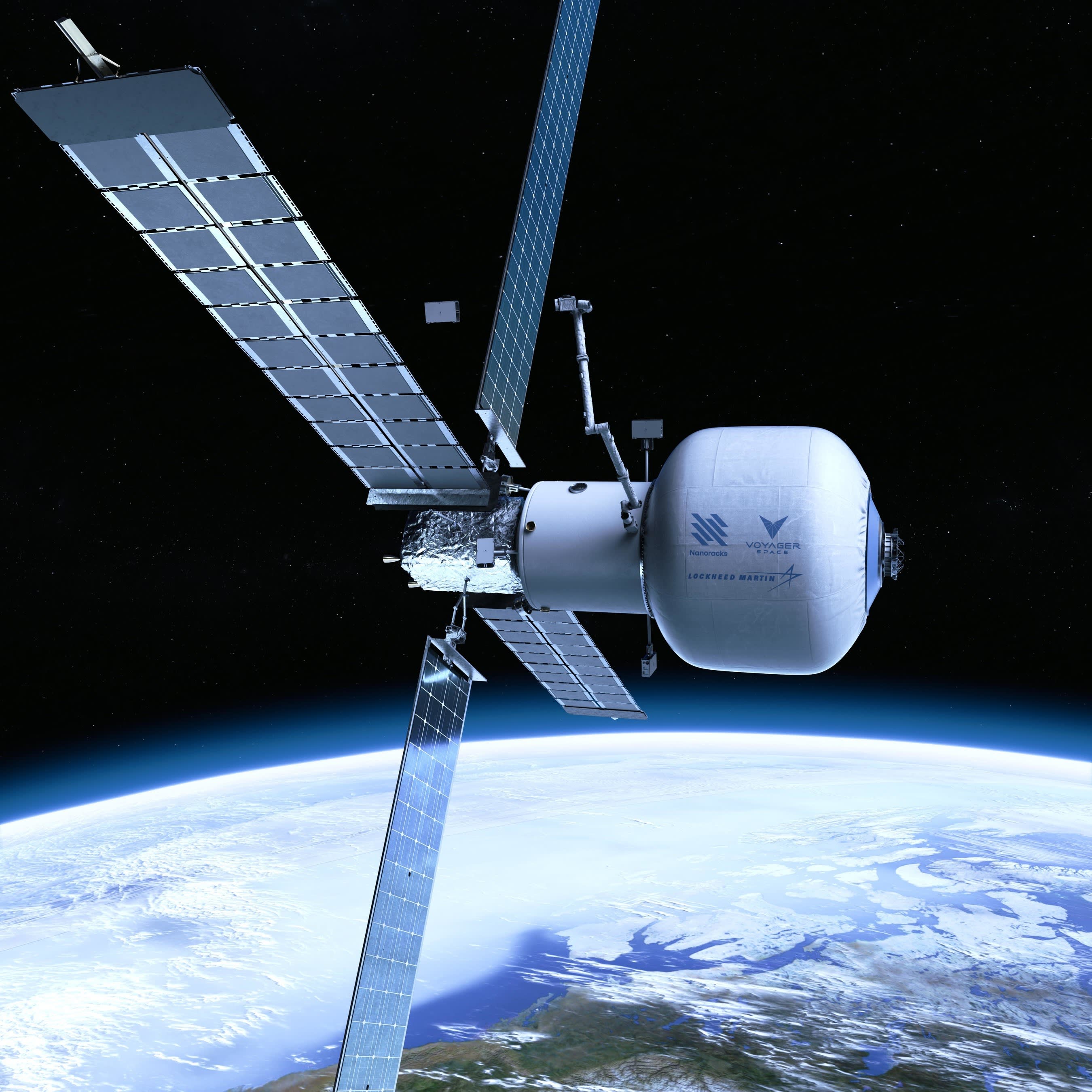
The concept art of a space station.
NASA awarded three companies contracts to develop private space stations as it prepares to retire the International Space Station.
The agency announced on Thursday that Jeff Bezos' Blue Origin and others were awarded a combined $418.6 million.
Blue Origin received $130 million and Northrop Grumman received $128.6 million in individual awards.
The majority shareholder of X.O. Markets is a private holding company.
NASA told CNBC earlier this year that it had received about a dozen proposals for contracts under the project. The space agency expects to save more than $1 billion annually by using private companies to build new space stations, as a result of the CLD program, which is an effort to turn to private companies for new space stations.
NASA has turned to public-private partnerships as a way to achieve its goals in space. The agency has had great success through this model in the past decade, with cargo and crew services provided via vehicles built by SpaceX and Northrop Grumman.
NASA doesn't expect to foot the entire bill for helping companies build new space stations, with the agency saying the strategy has to work for both the government and the private sector.
A rendering of a space station.
Blue Origin has a plan for a space station called Orbital Reef, in partnership with Sierra Space, Boeing, Redwire Space and Genesis Engineering. The baseline configuration of Orbital Reef will be operational by 2027.
A station called "Starlab" will be built by a partnership between Nanoracks and two other companies.
The company says it will initially support 4 astronauts and then expand to 8 people.
The company that won the NASA contract to attach a module to the International Space Station did not bid on the project. In a statement, Axiom said it was happy to congratulate the winners and look forward to the shared vision of a thriving commercial network.
